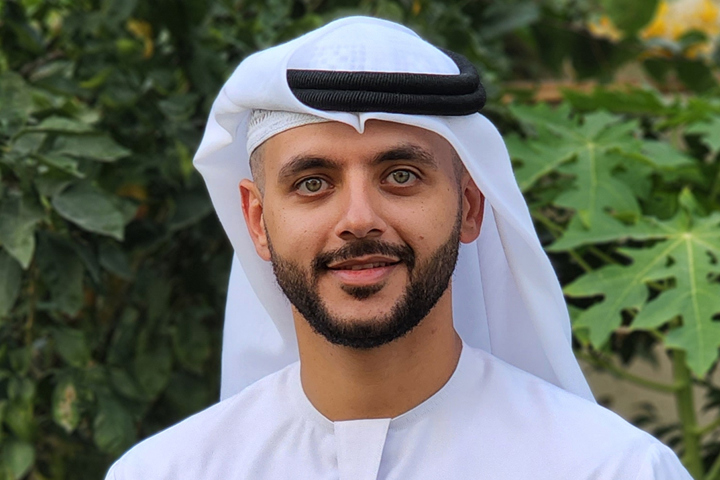
Inspired by nature’s beauty
How giant tortoises and a mountainous island landscape inspires Abdulla Karmustaji’s passion for the environment, sustainability, and the potential of Industry 4.0
Read more
Agile working opens doors for EGA’s bold aspirations on innovating the future of aluminium production and becoming a talent-driven organisation
Zeshan Ilyas has many achievements. But perhaps the most notable is that he is the first person in the UAE and only the 137th across the world to become a Certified Enterprise Coach (CEC) from the renowned Agile working organisation Scrum Alliance.
At EGA, Zeshan is the Enterprise Agile Coach – Industry 4.0, and he is committed to moving the organisation towards agility.
But what does this mean?
Webster’s defines agility as the ability to move quickly or having a quick resourceful and adaptable character. Scrum Alliance defines Agile organisations as human- centric, taking employee feedback, and responding to change rather than blindly following a plan, all with the final goal of delivering iterative and incremental value. All key to innovation.
Zeshan defines it more simply. An Agile mindset is guided by values and principles – which include empowered, customer centric teams that openly collaborate and co-create systems and processes. Agile teams systematically adjust and adapt quickly to change, with a strong sense of urgency.
Asking him how his Scrum Alliance certification makes him feel, Zeshan says, “It was a lot of work to get through and I feel really accomplished that I have achieved something of this nature. It’s a continuous journey – there’s no end to agility – and I am always looking to progress myself further, but yes, this is a moment of pride.”
In his first year at EGA, Zeshan feels he has accomplished the first step, which is to create an awareness around Agility at a high level. According to him, most people in his team now understand the concept.

He started the awareness program by running foundation level courses called Torchbearer that trained more than 200 people last year – “which is quite an achievement in itself” and this year the target is almost 1000, he adds.
Scrum Alliance’s mission envisions a world where “an agile way of working is so universal, it's simply called working”.
At EGA, that means innovation and time to market are key, Zeshan says. And this is where agility comes in. Zeshan explains. “When we are talking about Agile, we are talking about people with an agile mindset, and to enable this kind of mindset you need to work with the leadership teams and at the department level to execute that.

“This helps us in the long run with innovation, agility, in delivering faster – and in delivering value to our customers faster. After all, the reason any organisation exists is to create value by making their customers happy.”
What EGA has done over the past year, he explains, is the start of a long journey. Him and his team worked with one department at a time. “By one part moving faster, it helps other parts to move faster,” says Zeshan. “So hopefully by taking an incremental approach we’re able to bring all parts together so that every part is Agile, and they’re able to help the whole organization to go faster.”
A graduate from Middlesex University in England in 2006 with a degree in IT & Business Information Systems. Zeshan has worked for globally renowned companies in banking, fintech, telecommunications, gaming, software development, digital media, and industrial automation. After working for a considerable period in London, Zeshan moved to the Middle East, where he has been located since 2015. Prior to joining EGA, Zeshan worked with organisations in Bahrain, Saudi Arabia, Abu Dhabi, and Kuwait.
He was first properly exposed to Agile in 2010 where he was advised by another manager to become a Scrum Master – a concept where someone works with one team. Zeshan took the opportunity to become an Agile Coach, and then Enterprise Coach, who works at the top level of the organisation across different domains.
Zeshan, who has Pakistani roots but left his home country at 19, says he is a keen badminton player. He describes his work as “a passion” and says from that moment in 2010, “there is no way back – it’s a continuous journey”.